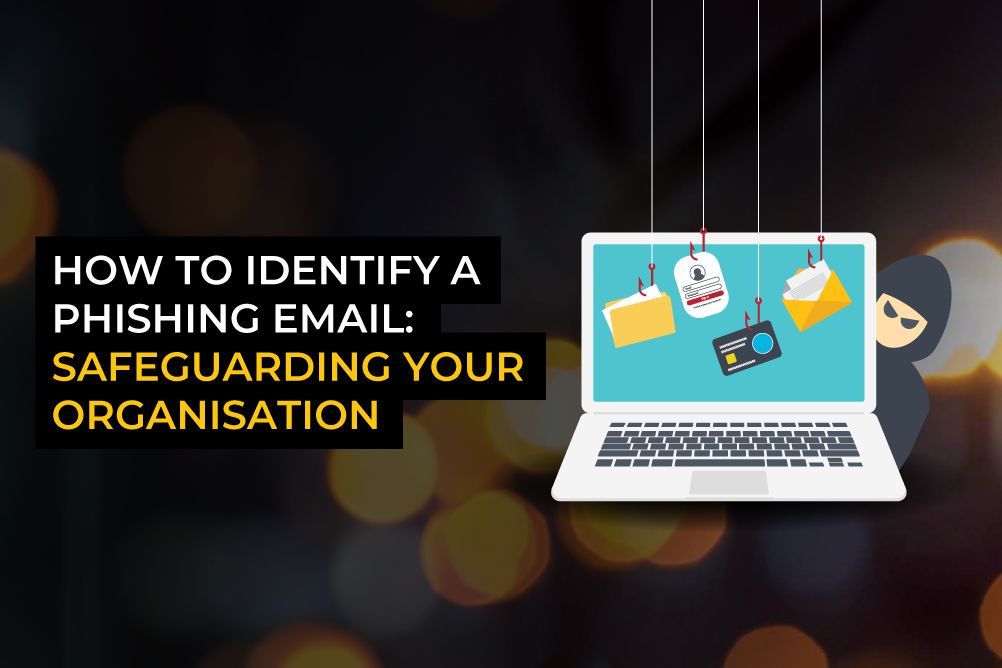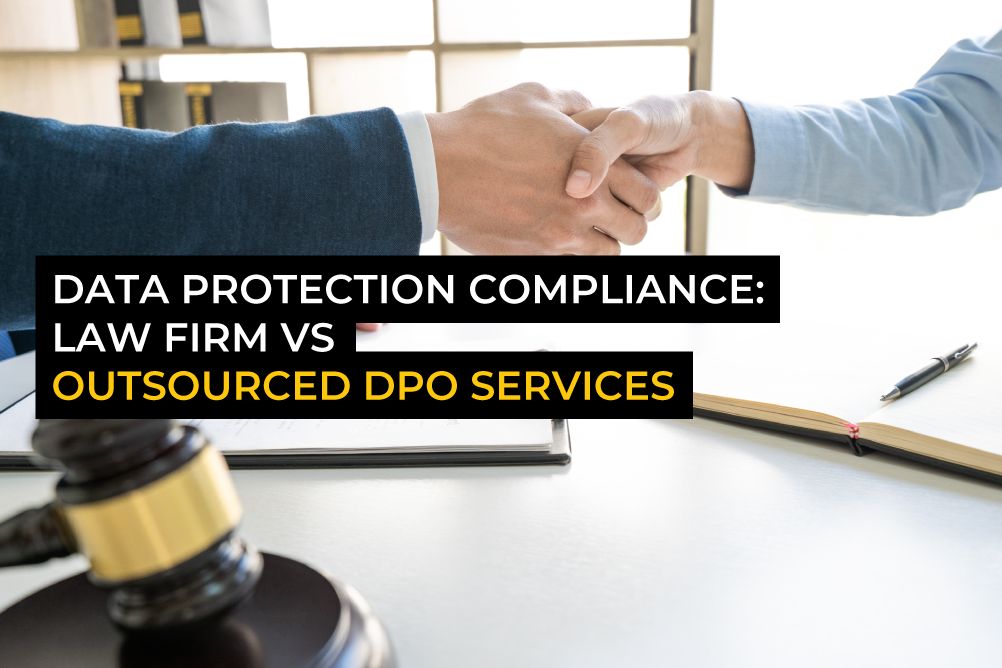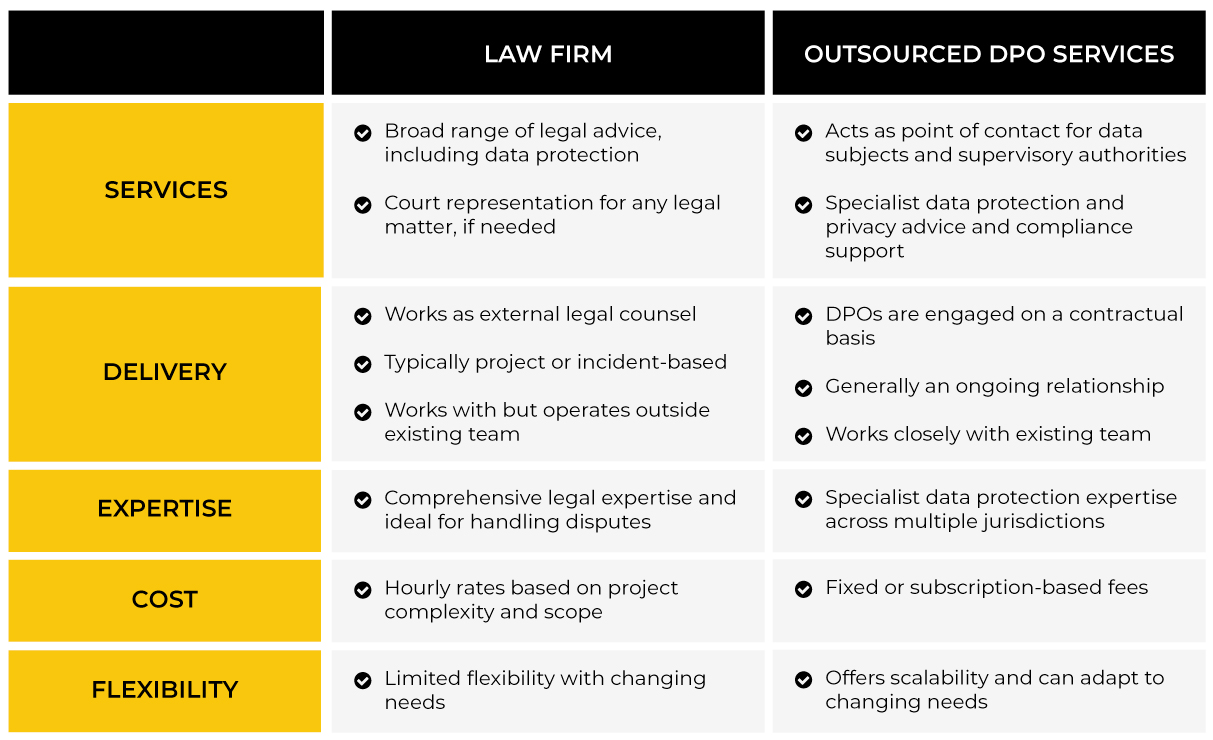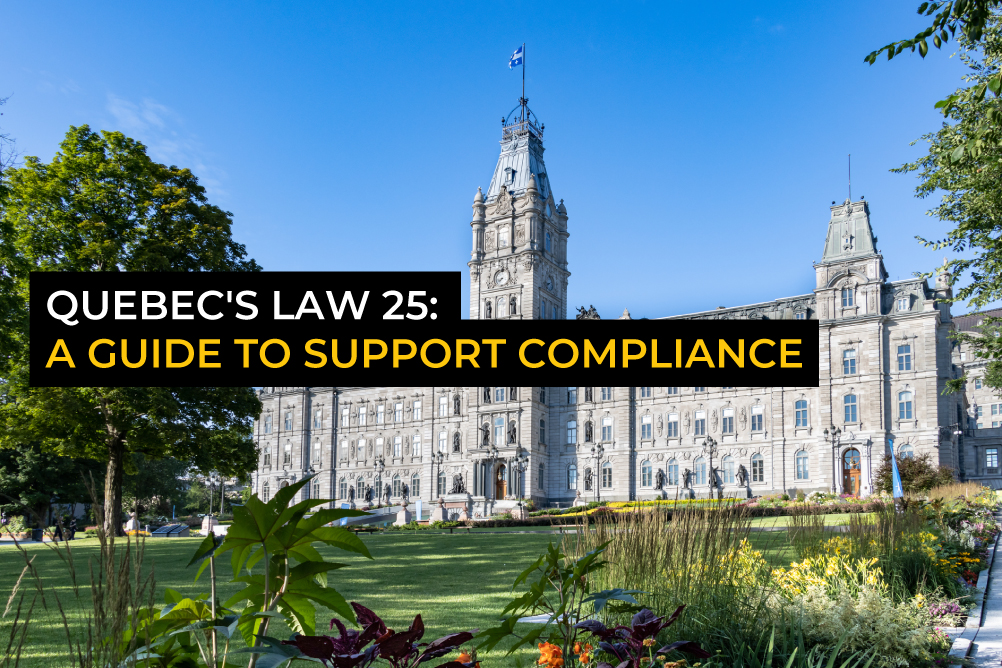- Contact The DPO Centre
- +44 (0)203 797 1289
- hello@dpocentre.com

How to identify a phishing email: Safeguarding your organisation
April 1, 2024
Data protection checklist for mergers and acquisitions
April 29, 2024Data protection compliance: Law firm vs outsourced DPO services

When it comes to ensuring data protection compliance, organisations often face a choice between engaging a specialist law firm vs outsourced DPO (Data Protection Officer) services.
Both of these options offer valuable expertise and support, each with their own unique advantages. So, how do you decide which is the best external option for your business?
In this blog, we take a broad look at the distinctions between a law firm specialising in data protection and an outsourced DPO service provider. We explore the similarities and differences between these two potential avenues, covering the fundamental factors organisations should take into consideration when deciding which route to take.
It is important to highlight that DPO service providers and law firms also commonly work together on shared clients to ensure complete coverage of data protection matters.
Remember, the key to finding the most appropriate data protection support for your organisation is to understand your unique requirements and priorities based on your legal obligations and industry-specific regulations.
Law firm vs outsourced DPO services
The main similarity between a specialised law firm and an outsourced DPO service provider is that they both offer access to professionals with expertise in data protection and privacy law and regulations.
-
-
- Law firms often have a team or individual experts who can handle data protection matters and give advice as part of broader legal risk management
- Outsourced DPO services provide experienced Data Protection Officers (DPOs) who solely focus on data protection legal requirements and act as an official regulatory point of contact
-
Both aim to ensure compliance with data protection laws, such as the General Data Protection RegulationRegulation (EU) 2016/679 of the European Parliament and of the Council of 27 April 2016 on the protection of natural persons with regard to the processing of personal data and on the free movement of such data (General Data Protection Regulation). (GDPR), and both offer best practice guidance and advice.
This is a simplified overview and, of course, individual law firms and outsourced DPO service providers will each have their own unique service offerings, specialist practitioners, approaches and methodologies.
Therefore, let’s take a closer look at the differences between the two services, focussing on data protection services and delivery structures.
1. Data Protection services
These are the key data protection services that specialist law firms and DPO service providers generally offer:
Law firm
-
-
- Legal consultation and advisory services: Law firms provide a broad range of expert legal advice, including data protection and compliance. Although they won’t usually act as the official regulatory point of contact in a DPO role
- Litigation and dispute resolution: Law firms provide counsel representation in court cases, including DSAR disputes, regulatory investigations and enforcement actions
- Commercial contracts and transactions: Law firms can help with a range of contracts and negotiations associated with data protection, including mergers and acquisitions
- Policy development: Law firms can assist with a range of documentation, including privacy notices and data breach policies
-
Outsourced DPO service providers
-
-
- Focussed expertise: An outsourced DPO service provides dedicated experts offering a range of specialist data protection/privacy compliance advice and guidance
- DPO role: An outsourced DPO is the official point of contact for data subjects and supervisory authorities. Provides practical support and advice for developing data protection policies and procedures
- Risk assessments: DPOs oversee the creation of Data Protection Impact Assessments (DPIAs) on various data processing activities to identify and help mitigate potential risks
- Training and education: Tailored data protection training courses for staff awareness and compliance requirements
- DSAR response: Specialist service to deal with one-off, complex, or ongoing Data SubjectAn individual who can be identified or is identifiable from data. Access Requests, often provided on a pay-as-you-go basis
-
2. Service delivery structure
When we think of delivery structure, we’re looking at the way services are provided, which is important for deciding on the best option for your needs.
For example, you might require ongoing data protection compliance support or a dedicated DPO to relieve the burden on internal resources. Or you might only need short-term, specific legal advice about a Data Processing Agreement (DPA) with a third party.
Knowing the delivery structure can help you decide which service would be best. Here’s why:
Law firm
-
-
- Consultations: Law firms provide external counsel and legal advice, and organisations generally engage with them on an incident-by-incident or individual matter basis
- Project-based: Advice and support is geared toward specific legal projects or incidents
-
Outsourced DPO service providers
-
-
- Ongoing relationship: Outsourced DPOs generally maintain an ongoing relationship with organisations ensuring consistent data protection advice and compliance tailored to their specific business operations
- Adaptable resource: Additional data protection advice and support for any new projects or initiatives is easy to arrange
-
3. Other factors to consider
Cost
Law firms rarely work on retainer or in an ongoing fashion. Advice is project and incident-based rather than ongoing. Outsourced DPO services are usually retained on a rolling contract, with advice and support given in an ongoing capacity.
Expertise
Law firms are ideal for organisations requiring legal expertise that also incorporates data protection issues such as personnel disputes, mergers and acquisitions and cross-border investigations.
Outsourced DPO services are ideal for organisations requiring a dedicated professional to handle data protection and privacy matters. Expertise includes cross-border data transfers, advising on best practice processes, and acting as an official point of contact for data subjects and supervisory authorities.
Law firm vs DPO services: Summary
As we mentioned earlier, when choosing external data protection services, it is important to make an informed decision based on your organisation’s specific needs and priorities.
You should consider the type of expertise, the way the service is delivered, the costs and flexibility required.
Here’s a useful overview of the key distinctions between a law firm and outsourced DPO services:
The DPO Centre provides a wide range of outsourced data protection services, including Data Protection Officers (DPOs), EU and UK GDPR Representatives.
Our experienced DPOs work with organisations across the span of industry sectors to implement best practices and ensure compliance with data protection laws.
______________________________________________________________________________________________________________________________
In case you missed it…
- What is a DPA and why do you need one?
- International data transfers: Explaining SCCs, UK Addendum and UK IDTA
- GDPR Representative: Do you need one?
______________________________________________________________________________________________________________________________
For more news and insights about data protection follow The DPO Centre on LinkedIn
Fill in your details below and we’ll get back to you as soon as possible




